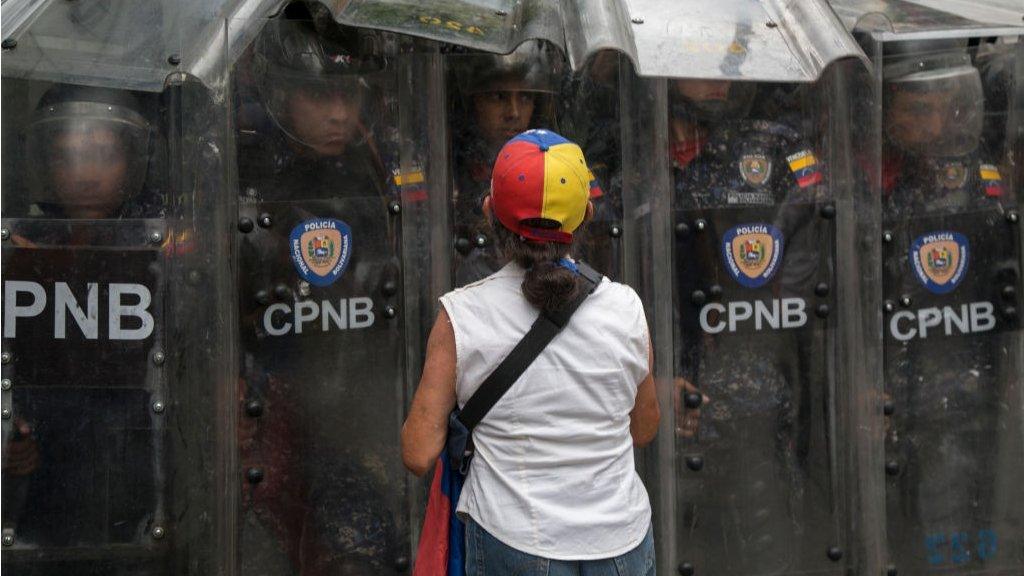Venezuela crisis: Bans on protests that 'disturb' election
- Published
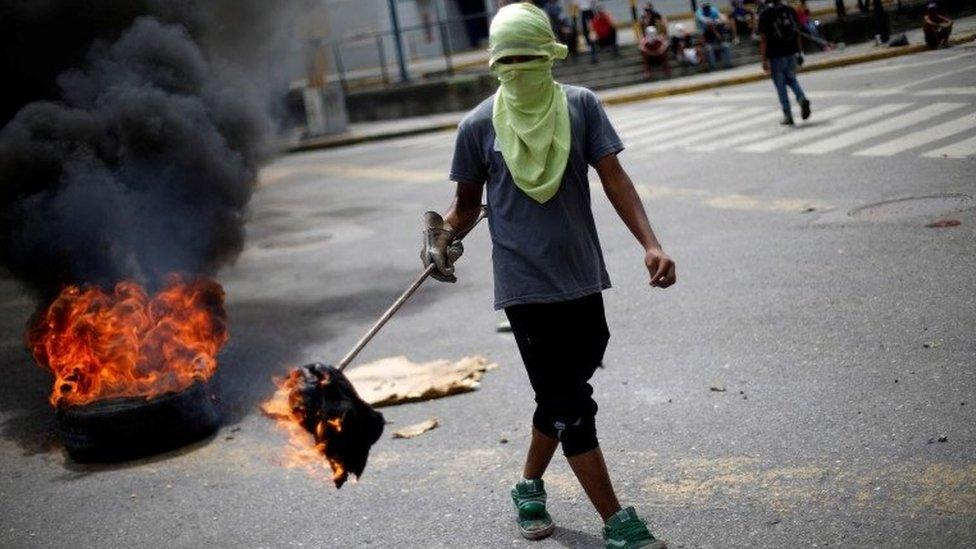
The government is outlawing protests from this Friday until Tuesday
Venezuela is banning protests that could "disturb or affect" Sunday's controversial election for a new constituent assembly.
Prison terms of between five and 10 years could be imposed on those contravening the ban, Interior Minister Néstor Reverol said.
More than 100 people have been killed in protest-related violence since April.
The opposition sees it as a move towards dictatorship.
The situation has worsened to the point that the United States has ordered family members living at the embassy in Caracas to evacuate the country. It also authorised its staff members to leave if they desire.
President Nicolás Maduro said his opponents should "abandon the road to insurrection" and added that he would be willing to begin a "roundtable dialogue in the next few hours".
However, the BBC's Will Grant in Caracas said that given the distance between the two sides, it may now be too late for last-minute negotiations.
A 48-hour general strike is currently taking place. A 49-year-old died in a protest in the northern Carabobo state on Thursday.
The opposition has also vowed to go ahead with a mass protest on Friday, despite the new measures.
The ban on activity will be in force from Friday until Tuesday.
"National meetings and demonstrations, concentrations of people and any other similar act that may disturb or affect the normal development of the electoral process are prohibited throughout the country," Mr Reverol said in a television address.
He said there would be high security on the streets during the election period, and 96 places across the country would be designated for "processing electoral crimes".
Opposition politicians turned to Twitter to encourage people to fight against the ban by protesting on Friday, calling the demonstration the "taking of Venezuela".
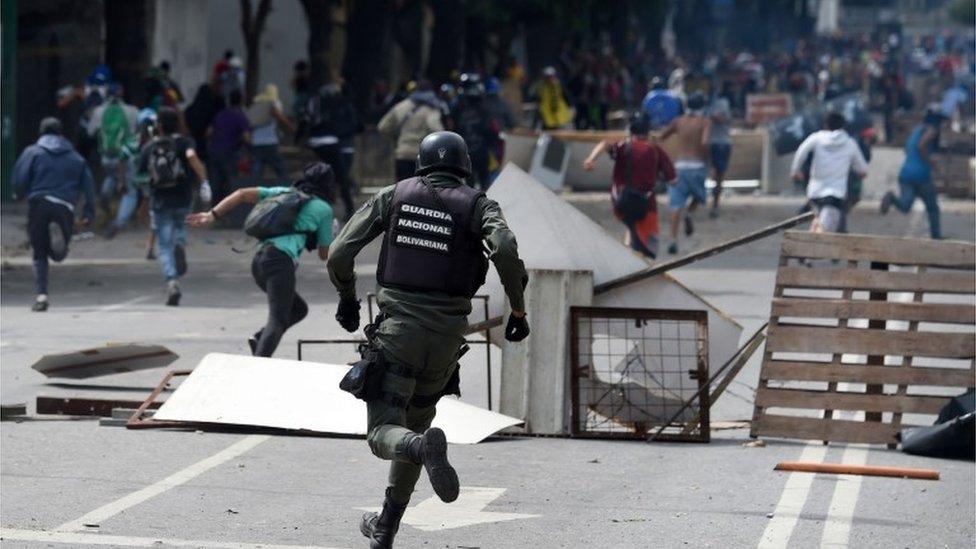
Clashes broke out on the second day of the general strike
The new constituent assembly, comprising 545 members, will rival the National Assembly, currently controlled by the opposition, and will have the power to rewrite the constitution.
President Nicolás Maduro justifies the new institution as a way of bringing peace back to the divided nation.
On Wednesday, the US imposed sanctions on 13 senior Venezuelan officials, including Mr Reverol.
The sanctions freeze the US assets of those targeted and stop American entities from doing business with them.
President Donald Trump promised "strong and swift economic actions" if the poll goes ahead.
Mr Maduro responded by describing the US as imperialists bent on ruling the world and called the sanctions "illegal, insolent and unprecedented".
- Published25 July 2017
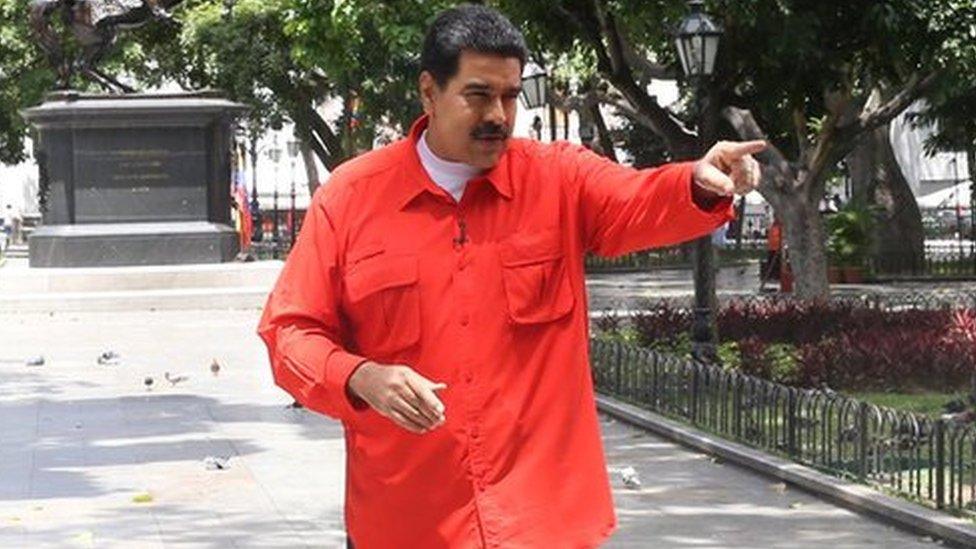
- Published21 July 2017
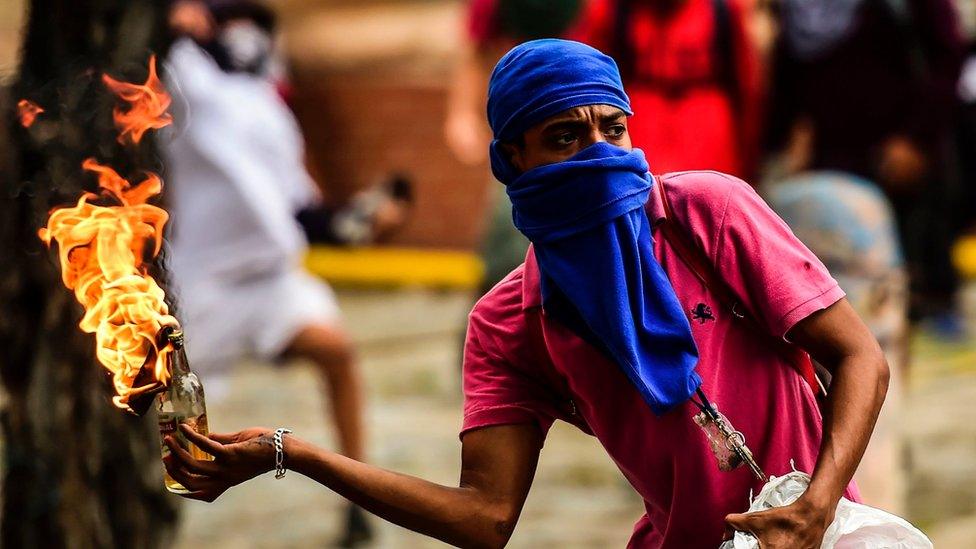
- Published18 July 2017
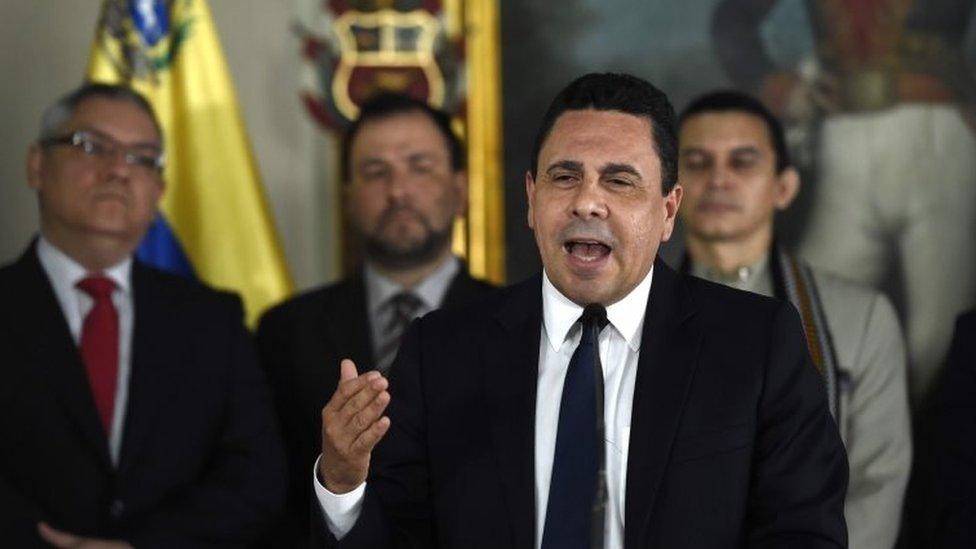
- Published15 June 2017
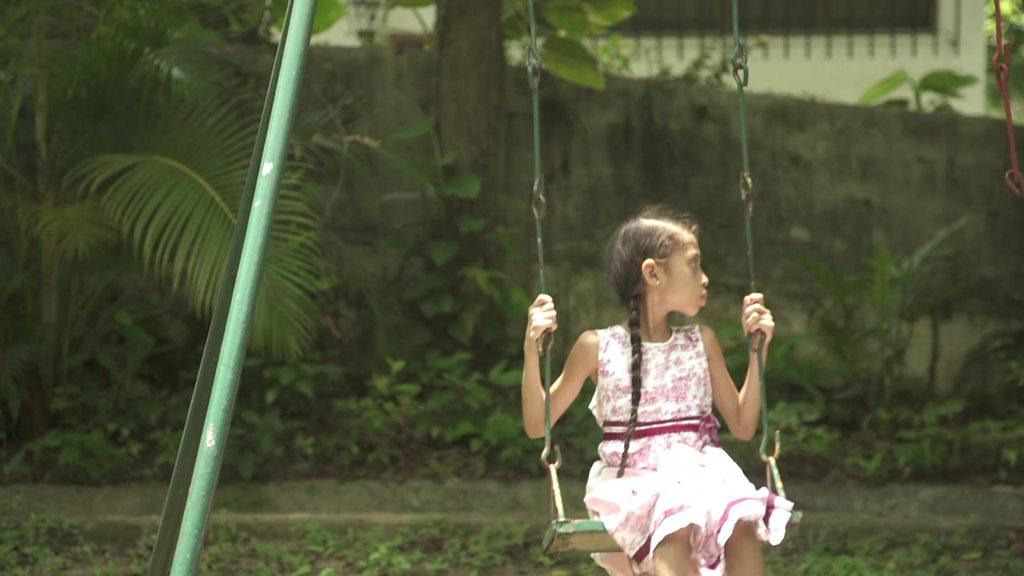
- Published19 July 2017
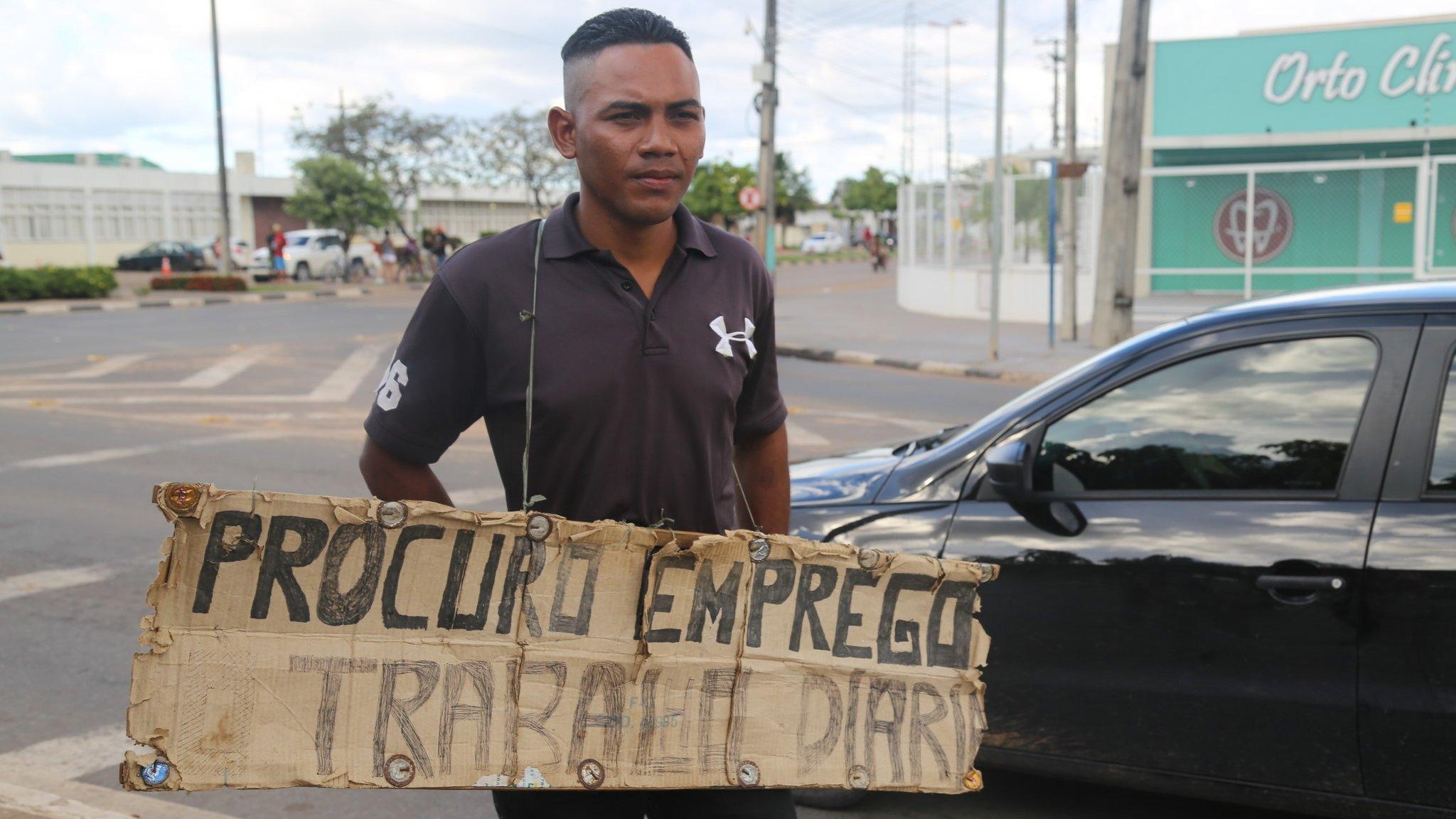
- Published12 August 2021
